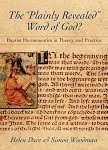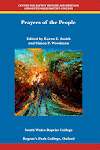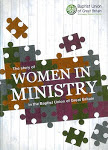Bloomsbury Central Baptist Church
3rd November 2013
Luke
19:1-10 He entered Jericho and was passing through
it. 2 A man was there named
Zacchaeus; he was a chief tax collector and was rich. 3 He was trying to see who Jesus
was, but on account of the crowd he could not, because he was short in
stature. 4 So he ran ahead
and climbed a sycamore tree to see him, because he was going to pass that
way. 5 When Jesus came to the
place, he looked up and said to him, "Zacchaeus, hurry and come down; for
I must stay at your house today." 6
So he hurried down and was happy to welcome him. 7 All who saw it began to grumble
and said, "He has gone to be the guest of one who is a sinner." 8 Zacchaeus stood there and said
to the Lord, "Look, half of my possessions, Lord, I will give to the poor;
and if I have defrauded anyone of anything, I will pay back four times as
much." 9 Then Jesus said
to him, "Today salvation has come to this house, because he too is a son
of Abraham. 10 For the Son of
Man came to seek out and to save the lost."
Luke
18:18-27 A certain ruler asked him, "Good Teacher,
what must I do to inherit eternal life?"
19 Jesus said to him, "Why do you call me good? No one
is good but God alone. 20 You
know the commandments: 'You shall not commit adultery; You shall not murder;
You shall not steal; You shall not bear false witness; Honor your father and
mother.'" 21 He replied,
"I have kept all these since my youth." 22 When Jesus heard this, he said
to him, "There is still one thing lacking. Sell all that you own and
distribute the money to the poor, and you will have treasure in heaven; then
come, follow me." 23 But
when he heard this, he became sad; for he was very rich. 24 Jesus looked at him and said,
"How hard it is for those who have wealth to enter the kingdom of God! 25 Indeed, it is easier for a
camel to go through the eye of a needle than for someone who is rich to enter
the kingdom of God." 26
Those who heard it said, "Then who can be saved?" 27 He replied, "What is
impossible for mortals is possible for God."
Today’s
story from Luke’s gospel is one
that I think I’ve known my whole life.
I
can remember as a little child in Sunday School
learning that song about Zacchaeus
who, apparently, was a very
little man
and a very little
man was he.
He climbed into a sycamore tree,
for, in defiance of the normal
conventions
of conversational grammar,
the saviour he wanted to see…
Well,
we all know Zacchaeus, don’t we?
Good old Zacchaeus, good old tiny little Zacchaeus.
But
the question that occurred to me,
as I was preparing for this morning, was
this:
Exactly how little was he?
We
don’t know very much about this pint-sized hero
of the opening paragraph of Luke 19.
But
I’d like to know just how vertically challenged he was.
I
mean, would our fun-sized tax collector
be small enough
to fit this pulpit correctly,
rather
than towering over it as I do?
Or
would our well endowed Lilliputian
be diminutive enough
to walk under the communion table?
Or
would our arboreal Borrower
be petite enough
to slip into my pocket?
Or
would Zacchaeus be small enough, possibly,
to pass through the eye of a needle?
You
see, we cannot read the story of Zacchaeus
in isolation from that of the rich
young ruler
from the previous chapter.
In
the rich young ruler, we meet a good man,
a law-abiding and godly man,
who
ultimately goes away saddened by his encounter with Jesus,
because he discovers that he loves his
possessions
too much to be parted from
them.
And
then Jesus says,
"How hard it is for those who
have wealth to enter the kingdom of God!
Indeed, it is easier for a camel to go
through the eye of a needle
than for someone who is rich
to enter the kingdom of God."
So
who then, we are left wondering,
can enter the kingdom?
Is
it only those who give away all their money?
Are the righteous only to be found
among the penniless?
I
hope the answer to this is ‘no’,
because I, along with many others, am
far from penniless.
And
so we come to Zacchaeus,
a small man who has received something
of a bad press over the years.
I
started the sermon with a passing observation
about the importance of grammar,
and
I’m afraid we have to spend a moment or two
on a technicality of Greek grammar
because
it affects the way we read our passage.
Normally,
Zacchaeus is presented as a bad man, a corrupt man,
someone who has grown very wealthy by
defrauding others
and collaborating with the Roman occupation
of Israel.
And
his encounter with Jesus is normally understood as a conversion story,
with his decision to give away half
his money
and to repay those he has
defrauded
providing the evidence of his repentance
and salvation.
And
the Bible version we use here at Bloomsbury, the NRSV,
certainly translates the story in this
way:
8 Zacchaeus stood there and said to the Lord,
"Look,
half of my possessions, Lord, I will give to the poor;
and if I
have defrauded anyone of anything,
I will pay
back four times as much."
But
the difficulty here is that this passage, in the original Greek,
is not in the future tense at all.
It’s
in the present tense…
In other words, Zacchaeus isn’t
promising
to change his ways from here
on in;
rather, he is explaining that this is
already his practice!
The
RSV captures this sense much better:
And Zacchaeus stood and said to the Lord,
‘Behold, Lord, the half of my goods I give to the poor;
and if I have defrauded any one of anything, I restore it
fourfold.’
He
isn’t so much repenting,
as he is attesting his righteousness.
And
if this reading is right,
a very different Zacchaeus starts to
emerge from the story.
He’s
not the bad man who repents,
rather, he’s a man trying desperately
to be good,
in the midst of a financial system
that tends towards corruption
at every turn.
After
all, he is a tax collector, and a chief tax collector at that!
He’s the big cheese at the top of the
tree,
and the tree he’s at the top
of is pretty dirty in places.
He’s a man who has managed to climb
his way to the top,
but who knows that the climb
has left his hands somewhat soiled.
And so he already has a system in
place
to ensure that his money
doesn’t own him,
to ensure that his money
doesn’t corrupt him.
He gives half his money to the poor,
and if he defrauds someone,
knowingly or not,
he repays them four times as
much.
Tom
Wright sums up the problem facing Zacchaeus,
and it’s the same problem faced by so
many of us…
He
says, ‘Wherever money changes hands,
whether across a grubby table
in a tin shack
or across a sparking computer
screen in a shiny office
on the ninety-ninth
floor of a Wall Street skyscraper,
the hands all too easily get
dirty.
Whenever money starts to talk,
it shouts louder than the
claims
of honesty, respect and human
dignity.’
In
the eyes of his society,
Zacchaeus the chief tax collector was
a negative figure.
The
game of ‘bash the banker’ is clearly nothing new,
with those who succeed financially
having always been an easy target
for those further down the
pyramid.
Jericho
was a centre for the collection of taxes,
and the Romans worked with the Jewish
tax authorities
to ensure that not only were the taxes
collected
for the local government of
Judea,
but also that taxes were taken
to pay for the Roman
occupation of the land,
and to fund the wider regime
of the Roman empire.
The
Jewish population massively resented paying taxes to Rome,
and regarded those who were involved
in the taxation system
as
traitors to their nation,
as collaborators with the
Romans.
And
so Zacchaeus would have been ostracised by his own people,
pre-judged as a sinner
because of his profession and his
success.
Zacchaeus
could protest his personal ethical code all he liked,
but in the eyes of his own people,
he was no longer fit to be called a
Jew.
He
was, to put it another way,
lost to the house of Israel.
He
had been crowded out
by those who would belittle and demean
him.
‘Zacchaeus
was a very little man, and a very little man was he’
you can almost hear the local children
chanting,
as he is diminished in their eyes.
Crowd-mentality
can be an ugly thing, can’t it?
As we collectively decide who’s in,
and who’s out;
who’s part of us, and who’s
lost to us.
Society
fixates on certain people, certain professions,
and rules them persona non grata.
And
so some people live at one remove from society,
not necessarily because they are bad
people,
but just because they don’t fit.
It
seems there was something about Zacchaeus
that drew him to Jesus.
Like
so many of us who have money and possessions,
there was something in him that
nagged,
something that drove him to seek a
better way.
It’s
surely no co-incidence that when Zacchaeus tries to see Jesus,
he climbs a tree to the top,
over the heads of the crowd who were
in the way.
He
might not be the bad man of his own legend,
but he certainly seems to be a man who
is used to getting to the top.
The
crowd would have kept him in his place,
but he is determined to catch a
glimpse of the good rabbi,
who is talking about a better way, a
new way of being human,
where status and hierarchy
case to matter,
and where each person is valued for
who they are,
not for who other people
think they are.
And
as so many others have discovered since Zacchaeus,
when someone goes looking for Jesus,
they discover that Jesus has been
looking for them all the while.
In
the background to Luke’s story of the lost tax collector,
are three other stories of ‘lost-ness’
also unique to Luke’s gospel,
I’m thinking of the parables
of the lost sheep, the lost coin,
and the lost (or
prodigal) son,
all of which demonstrate that God’s
primary concern,
as revealed in Jesus,
is to recover that which is lost.
Like
the good shepherd searching for the lost sheep,
like the woman searching for the lost
coin,
like the father searching for the lost
son,
so the
Son of Man seeks those who are lost,
in order to restore them
and to bring salvation to their house.
The
parables of chapter 15 become reality in chapter 19,
and the stories of finding that which has
been lost
take
flesh in the telling,
becoming real in the life of a little
tax collector.
And
so Zacchaeus climbed his tree,
rising above the crowd that had already
written him off,
had
already consigned him to the back of the queue.
And
the stage was set for his encounter with Jesus,
the scene so beloved by Sunday School
teachers down the years.
Zacchaeus
looks down, Jesus looks up,
their eyes met across a crowd...
and suddenly everything is different.
Zacchaeus
starts as a spectator,
but quickly finds himself drawn in
as an active participant for the
kingdom.
Jesus
does what he has done elsewhere,
and invites himself to share a meal
with the ostracised tax collector.
Luke’s
gospel is particularly, and somewhat surprisingly,
positive about tax
collectors:
they are listed amongst those coming
to be baptised (3.12, 7.29),
they come near to Jesus to
listen to him (15.1),
Jesus regularly shares food with them
(5.29-30; 7.34),
one of the disciples, Levi,
is a tax collector (5.27),
and the tax collector in the parable
we looked at just last week
goes away justified (18.13-14).
It’s
almost as if, for Luke, the socially marginalised tax collector
is the perfect example of exactly the
kind of person
who the religious establishment would
write off
as unredeemably compromised
but whom Jesus intentionally reaches
out to.
The
children’s song captures the moment beautifully:
And when the Saviour passed that way,
He looked into the tree and said,
'Now, Zacchaeus, you come down,
For I'm coming to your house to tea.'
In
the ancient world, eating with someone was a highly symbolic action.
To go to someone’s house, and to
receive hospitality from them,
was to impart value upon
them.
To take the gift of food from someone
was to pay the giver an
honour.
And
for a rabbi like Jesus to take the initiative
and invite himself to the house of a
notorious outsider like Zacchaeus
was an unusual move, to put it mildly.
The
visit of Jesus to the house of Zacchaeus
was an intentional breaking down of
the barriers
that had kept him apart from society.
To
eat with him, to share food with him,
was to impart to him an honour
that no-one else would grant.
And
it’s as Jesus sits at his house,
that the righteousness of Zacchaeus is
revealed.
It
emerges that he is not what others had thought he was,
he isn’t a man on the make,
determined to succeed whatever and
whoever the cost.
Rather,
he is a man who has not allowed his money to own him,
and who has discovered the possibility
of a life lived out of grace
and generosity;
both generosity of spirit,
and generosity of pocket.
The
contrast with the rich young ruler couldn’t be more clear:
The rich young ruler was publicly holy
and visibly righteous,
a great man, a tall man,
the kind of man others would
look up to,
as
an example of someone who had it all and had made it work.
And yet, when he met the call of
Christ,
he discovered that his love
of money
was keeping him from entering
the kingdom.
Zacchaeus on the other hand was
shunned by his own people
he was looked down on as a
small man,
looked up to by no-one.
And yet, when he met the call of
Christ,
he discovered that his
generosity and humility
attested his righteousness
far more
than any public
display of holiness could have done.
His
fourfold repayment to anyone who he may have defrauded
was at the top end of that required by
the Jewish law (Ex 22.1)
and
his giving of half of his money to the poor
was clearly a highly generous act.
But,
and here’s the significant thing,
we are not led to believe that either
of these acts on Zacchaeus’ part
left him as a poor or an impoverished
man.
Half
of a lot is still a lot,
and even once the compensation has
been given
to those who have been
defrauded
we can still think of Zacchaeus as a
man of means.
And
yet, his response is clearly adequate in Jesus’ eyes…
Plainly,
‘giving it all away’ is not the economic response
that is required of everyone who would
follow Jesus.
Perhaps
what we can learn from Zacchaeus,
the small man who passes through the
eye of the needle,
is that
what is required is a discovery and embodiment
of the kingdom values of generosity
and humility.
For
some of us this may involve a radical transformation
of our approach towards money
But
others of us may find here a gracious assurance
that we are loved and accepted by
Jesus
and welcomed into the kingdom of God.
Whatever
it is that Christ asks of us,
it begins with hospitality,
it begins with him reaching
out to us
across all
assumptions and attitudes
that would divide,
exclude, and condemn
it begins with the sharing of food,
and
the breaking down of barriers.
Jesus
invites us, too, to eat with him,
and to see what we might discover
about ourselves as we do so.
And
so we come to the table,
at the invitation of Jesus.
We
come as we are:
little people, tall people,
the sinners and the righteous,
the poor and the wealthy,
the holy and the compromised.
We
come, not because of any goodness of our own,
but because we need mercy and help.
And
as we eat with Jesus, and he with us,
salvation comes to our house also,
as our eyes are opened to the
possibilities
of a life lived out of
generosity and grace.
That
which was lost is found,
that which was excluded is made
welcome,
and
the new society of the people of God,
that new way of being human that is
the kingdom of God,
becomes real in our midst.
So
Jesus invites us to eat with him,
and he comes to our house to eat with
us.












